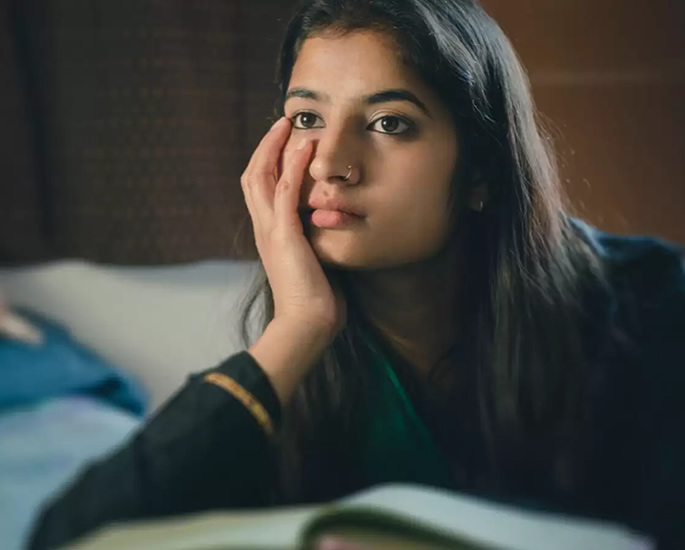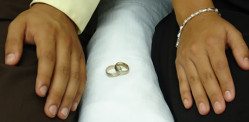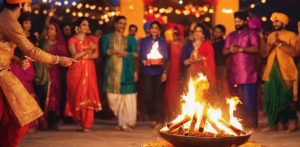"I felt that I had to choose/identify with one more than the other"
Growing up as a British Indian-Pakistani is certainly a unique upbringing to have.
This is the case for Layla Khan*, a student from the UK whose dual identity means she has an incessant need to find balance with who she is.
Like many British Asians, Layla wants to feel connected to her homelands and the traditions of her ancestors, yet, wants to bask in Western life.
However, this becomes even more of a challenge for those who are of dual heritage, most interestingly Indian and Pakistani.
Whilst many have to deal with being British Indian, British Pakistani etc, as a British Indian-Pakistani, Layla has had to deal with both.
Fusing both cultures, beliefs and values meant there was an identity crisis that she quickly had to understand.
However, this is hard given the narrative within British Asian communities surrounding this type of upbringing.
So, we spoke to Layla about what being British Indian-Pakistani was like and how she came to understand this identity.
A Difficult Past
Hearing of individuals of Pakistani and Indian heritage mixing romantically continues to be a taboo subject and often unheard of.
This spirals from a long history of troubles between the two countries.
Despite living over 7,000 miles from where these tensions originated, there are sometimes cultural rifts amongst the British South Asian community.
The pinnacle reasoning for this lies within the 1947 Indian partition. Tensions had risen between communities within the country as a result of British colonisation.
Once India had gained independence, politician Muhammed Al-Jinnah had suggested that a separate nation should be created for the Muslim minority.
This was because many felt as though they were unable to live with each other in harmony.
Before the British viceroy left the country, Al-Jinnah announced how India would be split into two nations. Thus, Pakistan was created.
Consequently, the great migration took place which was an extremely bloody and emotional affair, confronted with violence and murder.
Over 15 million people were displaced from their homes, as well as over 1 million deaths.
Historian Yasmin Khan had stated in her book The Great Partition (2007) that:
“When the partition plan was announced: many who wanted Pakistan hoped that their rights were now secure, and the two counties could live side by side in peace.”
In spite of this ‘hope’, the problems that arose pre-partition had only escalated following the separation.
The dispute over land ownership began to cause a lot of problems, most famously, the status of Kashmir.
This also channels right through to sporting events, where the rivalry between the two teams is further fuelled by the tensions.
Even for a Pakistani or Indian to travel to either country, the ability to obtain a tourist visa has been made very difficult.
As families migrated over to the UK, some still carried this attitude and shared it with the generations born in the UK, continuing the sensitivity of the topic.
However, following life in the UK, and living in areas that are ethnically and culturally diverse means communities are required to live harmoniously.
The commonality of mixing in the western world means it was inevitable that these communities would be unable to avoid each other, as was done previously.
However, it was this deep history that spurred Layla to learn more about her heritage and the ‘stigma’ around her dual identity.
Layla’s Identity Journey
Layla was born to an Indian Sikh father and a Pakistani Muslim mother, who had met and married in the UK.
Both had experienced quite a turbulent response from their families when they decided to marry.
It became very apparent that their relationship would not be accepted as Layla interestingly shared:
“Generally, it was the reaction of others from the South Asian community that would make me feel very confused.
“When speaking of my dual heritage, they would always ask me if everything was okay at home?
“Or they would ask questions like ‘how does that work then?’. It was another level of hostility that I experienced growing up.
“I was very upset and confused a lot of the time.
“Friends were unable to be supportive as I grew up in a very white community and often lacked understanding amongst them, even just being a POC.
“Then when interacting with other South Asians, I was never considered Indian enough or Pakistani enough.”
By receiving this hostility, Layla expressed how it often pushed her away from wanting to associate with her cultures as she always felt like an outsider.
She was unable to own her identity and bond the ties of her dual heritage and nationality:
“I was dealing with the battle of proving I am British. But also that I was proud to be from these two beautiful countries despite their problems with one another.
“Sometimes I felt that I had to choose/identify with one more than the other, but this just led to me still feeling so isolated.
“It was so hard and I’d often get quite upset that I couldn’t be considered Western enough.
“Then when it came to my heritage, I wasn’t accepted there either. It was like being in a no man’s land.
“I knew that my siblings were also going/went through the same identity crisis. But we all battled it in a different way and at different times.
“What didn’t help was that we didn’t really talk about it with each other.
“But this was because, at home, everything was normal.
“It was at home where we felt that all the cultures could co-exist in peace, and there were no feelings of alienation.”
As Layla grew older and understood the effect of the partition on people’s perception towards her dual heritage, she had begun to feel quite sad:
“It was really difficult understanding where these tensions had arisen from.”
“I remember hearing first-hand stories from my Bibi and Nanni in respect to their experience of having to migrate from one side to another.
“Many of these people were just victims of political unrest.
“It’s really upsetting that for some, it’s a situation that can never be resolved.
“With constant tensions in the homelands, it continues to reflect on the mentality of communities over here.”
Following on from the identity confusion, Layla noted how she was very grateful to also have positive experiences.
Growing up as a British Indian-Pakistani and seeing two cultures merge within her family was inspiring:
“Having this level of diversity within my family allowed me to participate in a number of traditional celebrations that ordinarily, I may not have been able to experience.
“For instance, I would often celebrate Eid with my mother’s side where we would have a massive feast and share gifts.
“We would then partake in Vaisakhi celebrations with my father’s side.
“It was great to see all the family together and interact with aspects that shaped my heritage.”
“I was very lucky to have had a balanced upbringing that allowed me to acknowledge that love knows no borders, in which my parents were a prime example.
“In an ideal world, nationality, race, caste and skin colour should be factors that never prohibit you from interacting.
“Especially on a social or romantic level with anyone.
“Unfortunately, as long as the tensions continue to bubble over at home, it’s unlikely that we will see progress in relationships over here.”
Undeniably, some of these tensions continue to filter through to the younger generations.
Therefore, it is inevitable that people like Layla, and others who are of a mixed background, will continue to feel the impact of identity confusion.
However, being minority communities within the UK, there is already a difficult battle trying to hone in on British identity.
It’s imperative that individuals choose to immerse themselves in knowledge and form their own opinions of dual identities.
Acknowledging that identity differences can exist and finding harmony in this is vital for progression.
Although being British Indian-Pakistani is rare, Layla’s journey shows it is about embracing both cultures and celebrating that uniqueness.
She believes her British Indian-Pakistani heritage taught her more about the history of her parents’ nations.
It is this information that has given her the foundation to learn more about herself, thus forming an identity she can finally call her own.































































